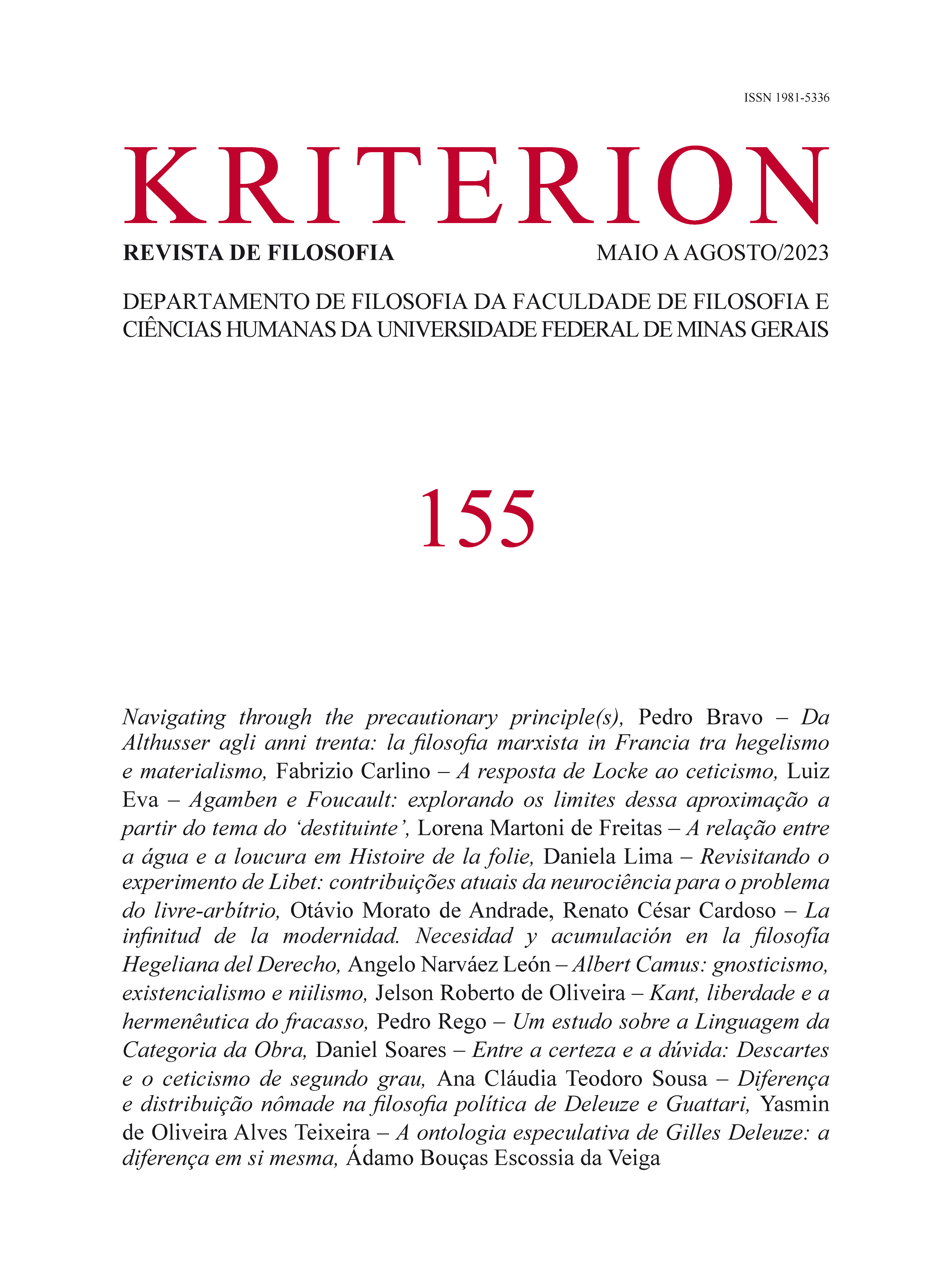KANT, FREEDOM AND THE HERMENEUTICS OF FAILURE
Keywords:
Freedom, Morality, Choice, ImputationAbstract
In this paper I attempt to show how an important traditional line of interpretation of Kantian philosophy went astray by the fact that Kant works in its practical philosophy with two distinct and apparently conflicting conceptions of the freedom of human will, namely, freedom as noumenal causality and freedom as the power of choice between alternative possibilities. Firstly, I argue that no conception of freedom in Kant`s philosophy can possibly conflict with that asserted in his most foundational works on practical philosophy, which defines freedom as the actual exercise of moral rationality. I next endeavor to show, by means of both textual and conceptual arguments, the inconsistency of the dominant adoption of a wrong version of the second alternative, namely that of freedom of choice as a supposed free power of choosing for or against morality. Finally, I defend that the only consistent way of conceiving of Kant`s freedom of choice in accordance with his freedom as the actual exercise of morality reveals a real conceptual difficulty in Kant`s practical philosophy, namely, the problem of the accountability of immoral decisions. The guiding-thread of this exposition is an interpretation of Karl Ameriks`s article of 2002: “Pure Reason of Itself Alone Suffices to Determine the Will”.
Downloads
References
KANT, I. Gesammelte Schriften. Hrsg.: Bd. 1-22: Preussische Akademie der Wissenschaften, Bd 23: Deutsche Akademie der Wissenschaften zu Berlin, ab Bd. 24: Akademie der Wissenschaften zu Göttingen. Berlin: 1900ff.
KANT, I. (1990) Kritik der Reinen Venunft. Hamburg: Felix Meiner;
ULRICH, Johann August Heinrich. (1788) Eleutheriologie, oder über Freyheit und Notwendigkeit. Jena: Cröker;
SHÖNECKER, D. (2013) “Kant`s Moral Intuitionism: The Fact of Reason and Moral Predispositions”. Kant Studies Onlinhe;
HILL, T. (2008) “Kant on Weakness of the Will”. In: HOFFMANN, T. (Ed.). Weakness of the Will from Plato to the present. Washington D.C., The Catholic University of America Press, 210-230;
AMERIKS, Karl. (2002) “Pure reason of itself alone suffices to determine the will”. In: HÖFFE, Otfried (Hrgb). Kritik der Praktischen Vernunft. Akademieverlag, Berlin, pp. 99-114;
SIDGWICK, H. (1962) The Methods of Ethics. Palgrave Macmillan;
TIMMERMANN, Jens. (2007) “Freedom and moral failure: Reinhold and Sidgwick”. In: Kant`s Groundwork of Metaphysics of Morals: a Commentary. New York ,Cambridge University Press;
GUYER, P. (2017) “The Struggle for Freedom: Freedom of the Will in Kant and Reinhold”. In: WATKINS, Eric. Kant on Persons and Agency. Cambridge University Press.
WEIL, E. (1990) Problèmes Kantiens. Paris, J. Vrin
Downloads
Published
How to Cite
Issue
Section
License
Copyright (c) 2023 Revista Kriterion

This work is licensed under a Creative Commons Attribution 4.0 International License.










